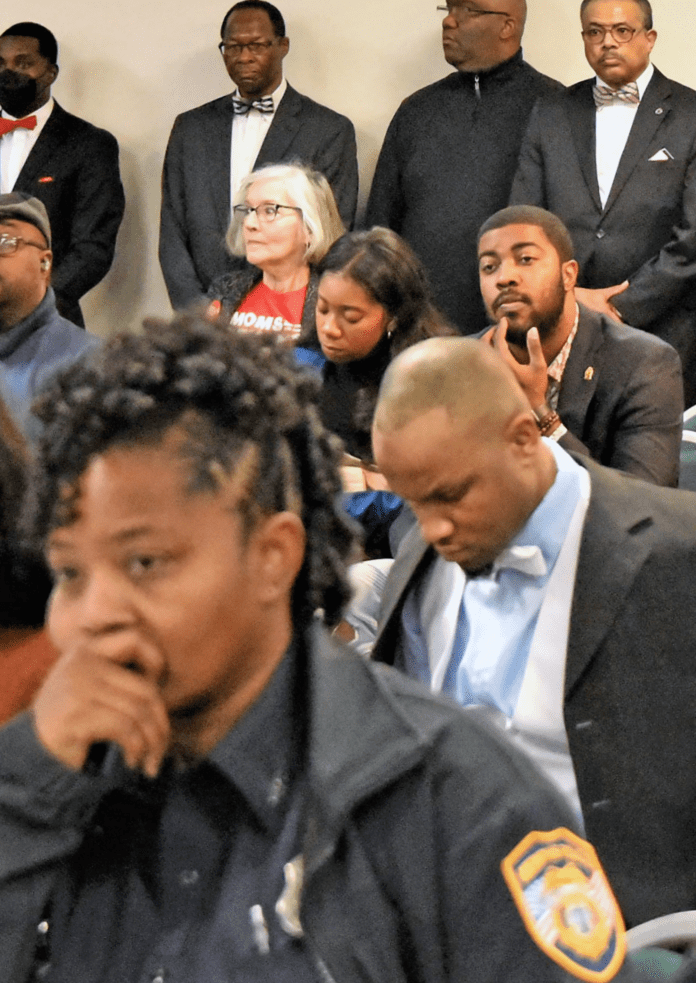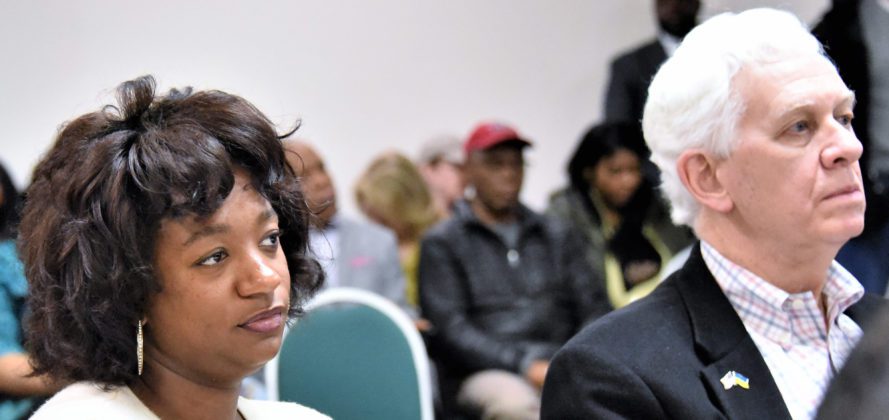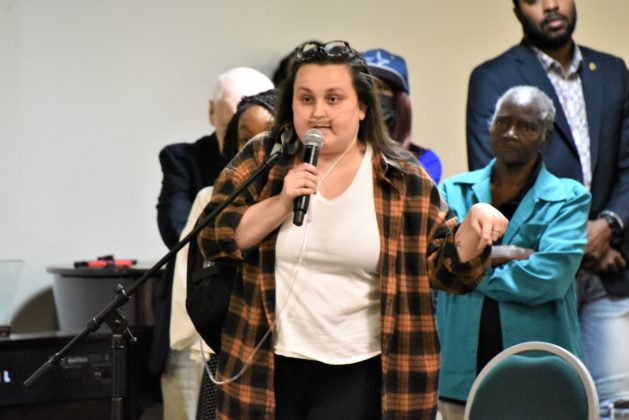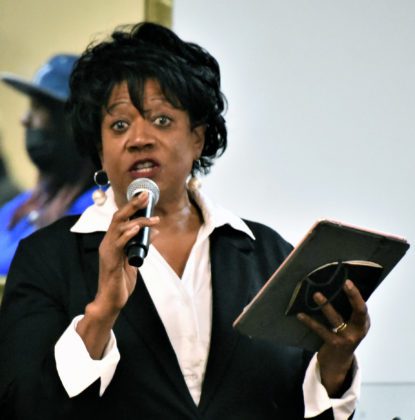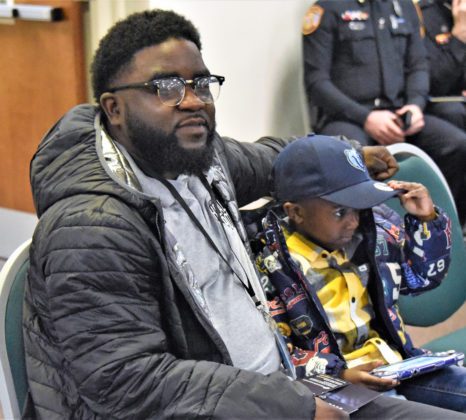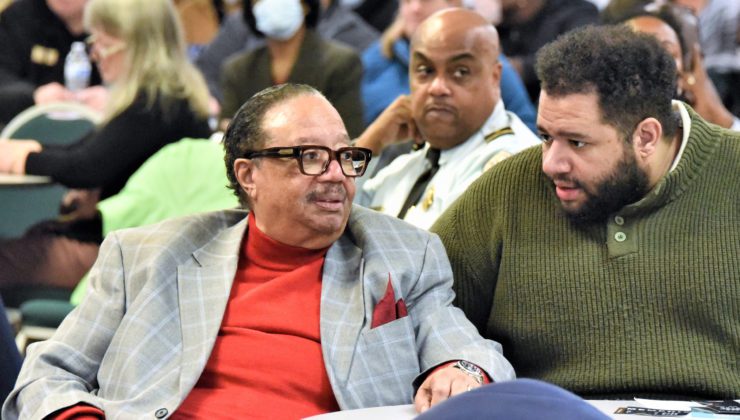The intersection of youth and crime drew a cross section of nearly 400 community leaders and concerned residents to a South Memphis church for assessments and thoughts about problem-solving ways forward.
A multi-purpose meeting space at New Salem Missionary Baptist Church was jammed with attendees drawn to a Memphis-Shelby County Crime Commission summit that featured experienced panelists and shared concerns about young people committing serious – often violent – crimes.
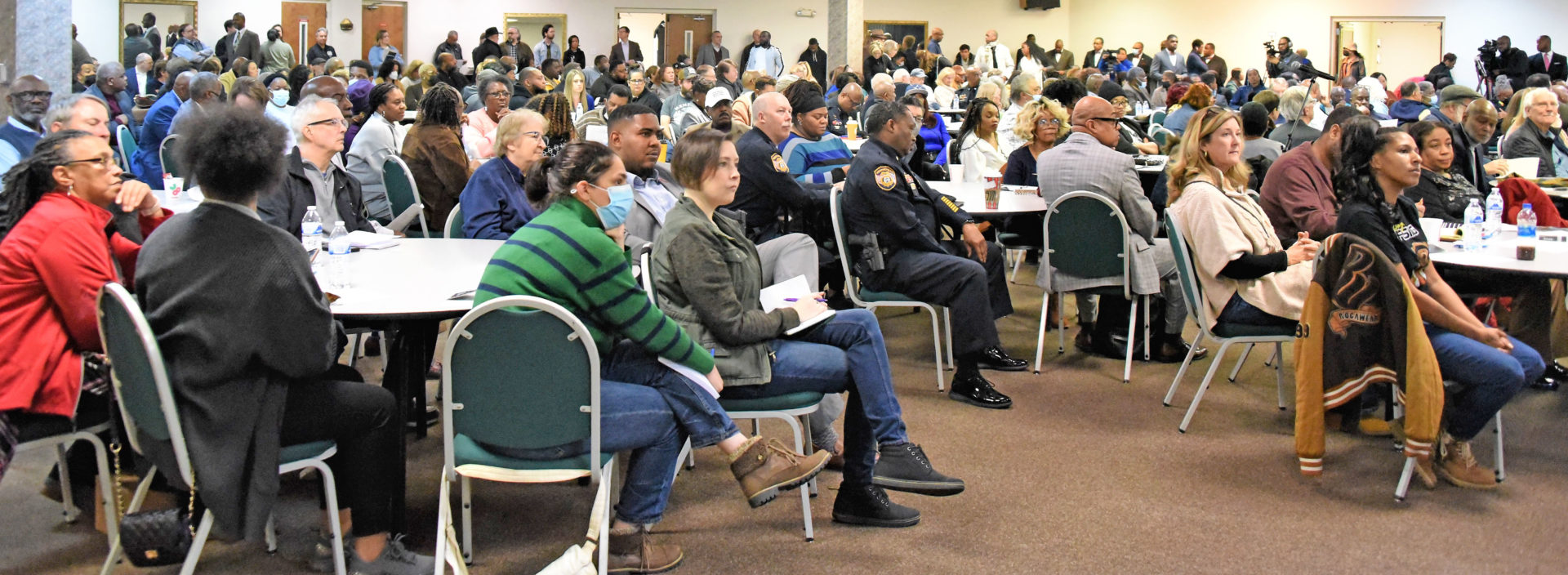
The Jan. 7 forum tackled such issues as the lack of services and resources in the Department of Children Services, the extremely high recidivism of young offenders, the strong connection between poverty and gun violence, teaching anger management to young people, addressing mental health and trauma, the rising number of armed carjackings, and exploring more effective alternatives to locking up young people.
“We must find ways to change the trajectory of our children’s lives,” said Memphis Police Department Chief Cerelyn “CJ” Davis, who, among things, reiterated her ongoing advocacy for a holistic approach.
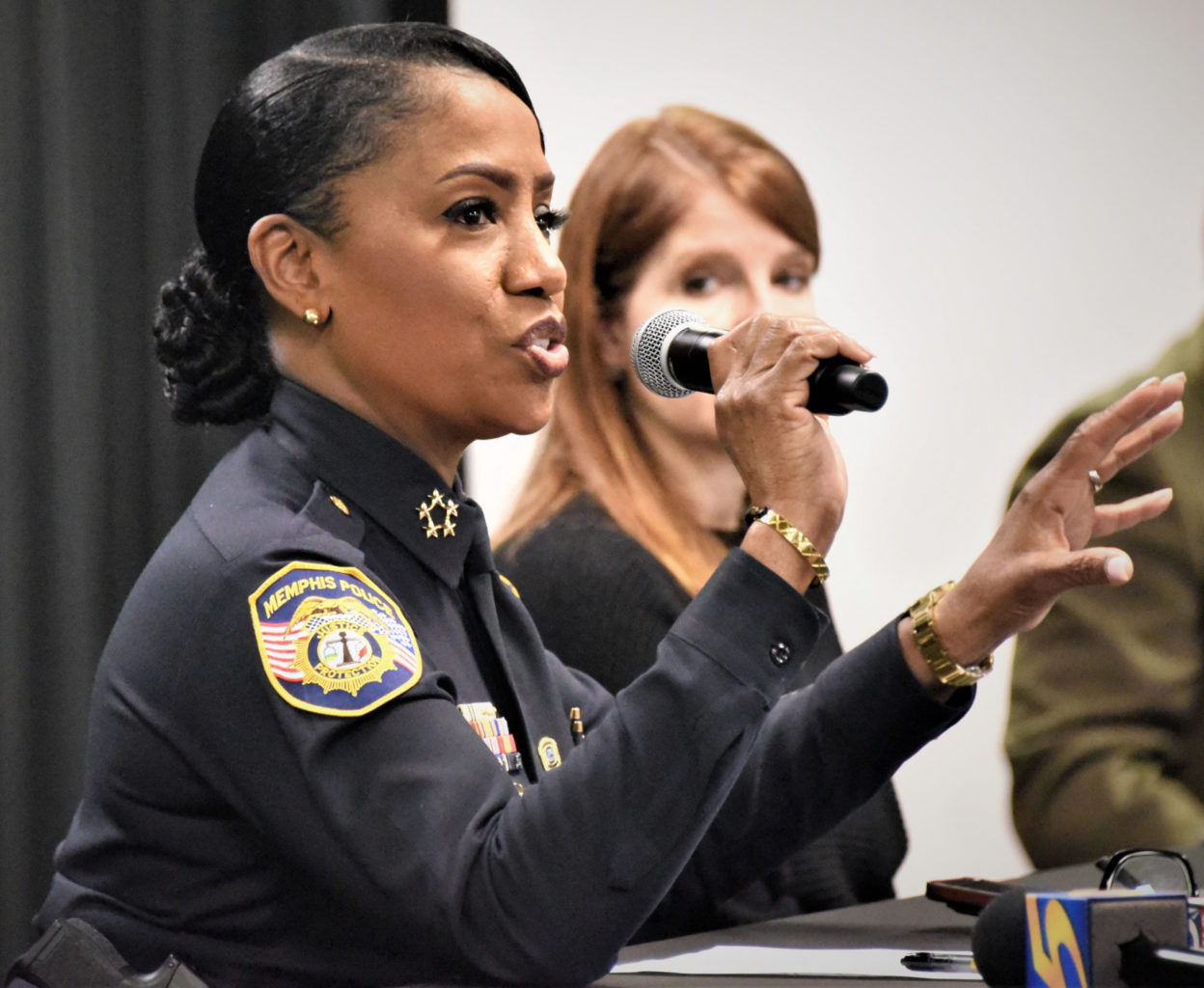
“We have not tracked recidivism among juveniles with the same intentional focus as adult offenders, but I can tell you that we pick up the same juveniles two to three times a month. Memphis police engaged with more than 2,000 juvenile offenders in 2022.”
By the end of the summit, one thing was abundantly evident: there is a sense that the solution to effectively address juvenile crime is complex, multi-faceted and achievable only through a greater investment of time and resources in troubled youth.
Three other panelists – newly-elected Juvenile Court Judge Tarik Sugarmon, Memphis Allies Executive Director Susan Deason, and Tennessee Department of Children’s Services Deputy Commissioner Darren Goods – addressed various aspects of dealing with troubled youth.
Each spoke briefly from their areas of expertise and about the challenges that Memphis and Shelby County residents face dealing with young people who are committing serious crimes.
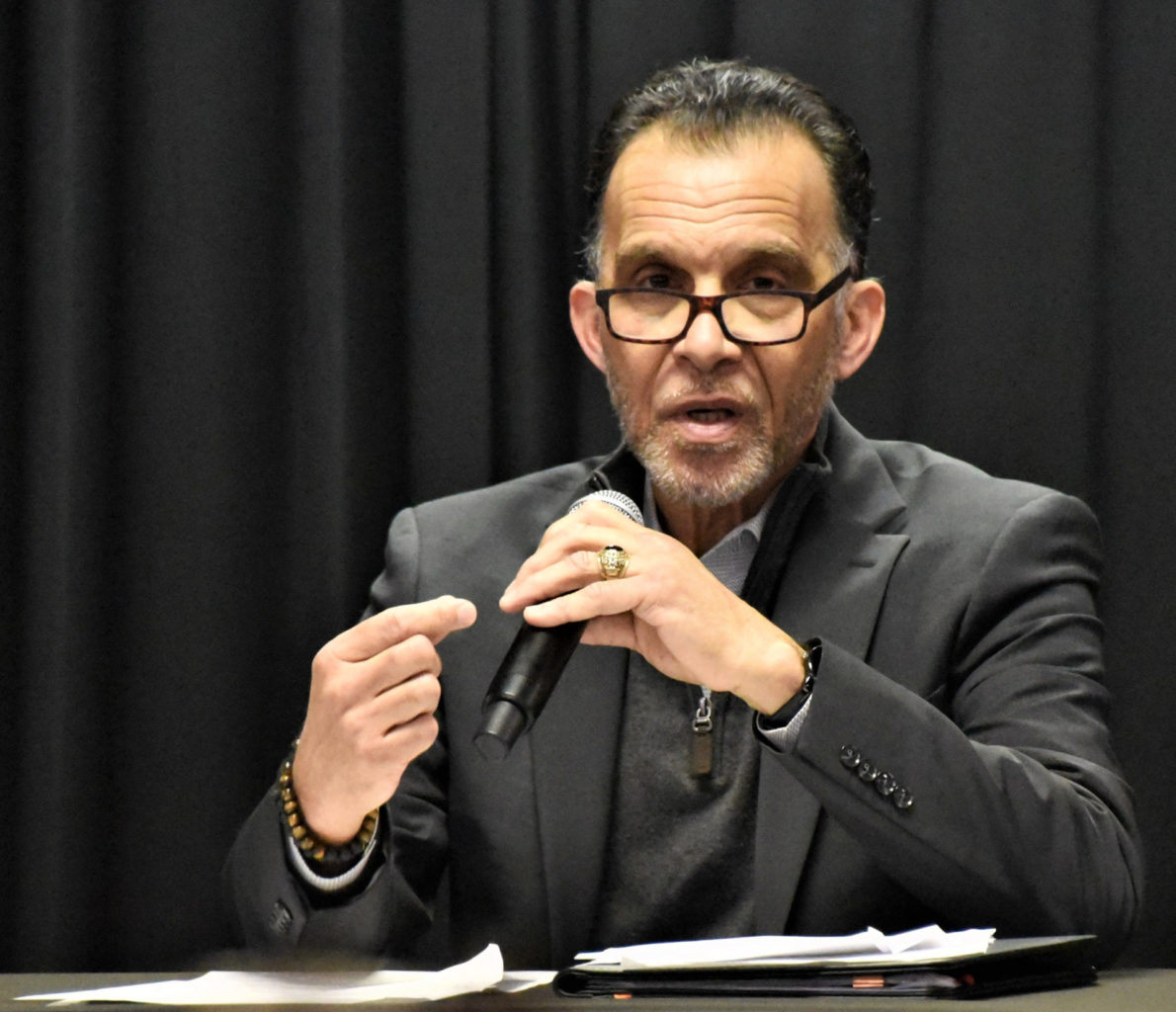
“Juvenile Court is not a law enforcement agency,” said Sugarmon. “While we are seeking to change the behavior of young people, we must also change language and the way we refer to them. They are not ‘juveniles’ and ‘delinquents.’ These are our children, our adolescents, our teens.”
He challenged attendees to take advantage of “important opportunities” to mentor and spend time with youngsters
“Troubled young people need real connections with caring adults who are willing to work with them and guide them,” said Sugarmon. “Children who are not connected with the village just burn the whole thing down. Young offenders need volunteers and mentors who are willing to fill in the gaps left by lack of services and dysfunction in the home.”
Goods said DCS does not have the resources to provide adequate services to help children transition into young adulthood.
“Young people are automatically out of DCS custody when they turn 18,” said Goods. “DCS kids generally end up going back to the dysfunctional environment from which they were removed. So many need help beyond their 18th birthday.”
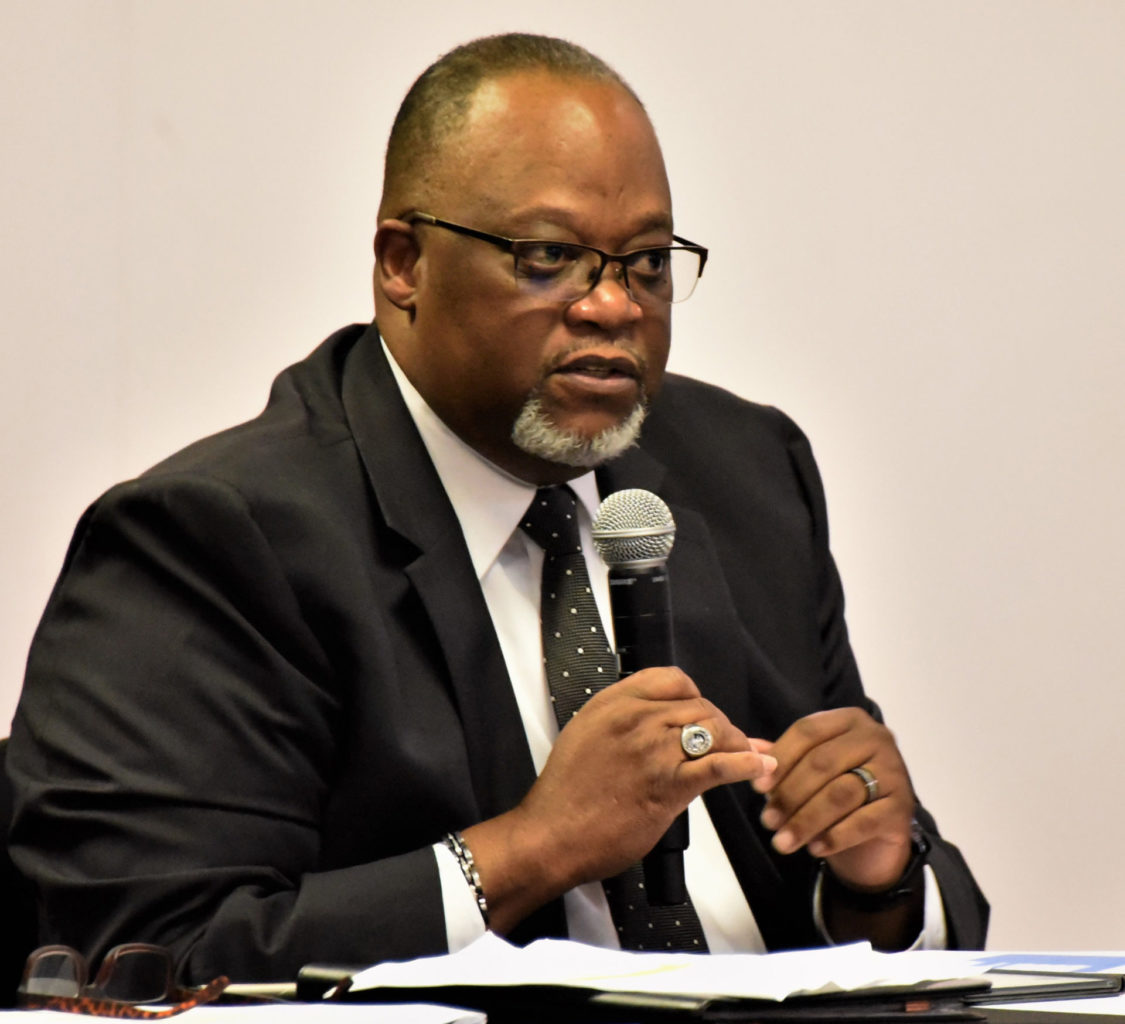
Sugarmon agreed with Goods’ way of thinking.
“I would appreciate a way to keep youth up to the age of 25,” he said. “They need to continue in the services and programs. They need interventions well past their 19th birthday.”
Sugarmon advocated more blended sentencing to help juveniles get back on the right track. Blended sentences allow young offenders to access both juvenile and adult services. In many cases, adult jail time can be avoided if the offender fully complies with the juvenile sentence.”
Deason touted the value of partnerships between private sector organizations and law enforcement.
“There is a tremendous staff shortage in the juvenile justice system across the state,” said Deason. “The private sector must forge an effective collaboration with law enforcement as an essential element to finding solutions to rising youth crime.”
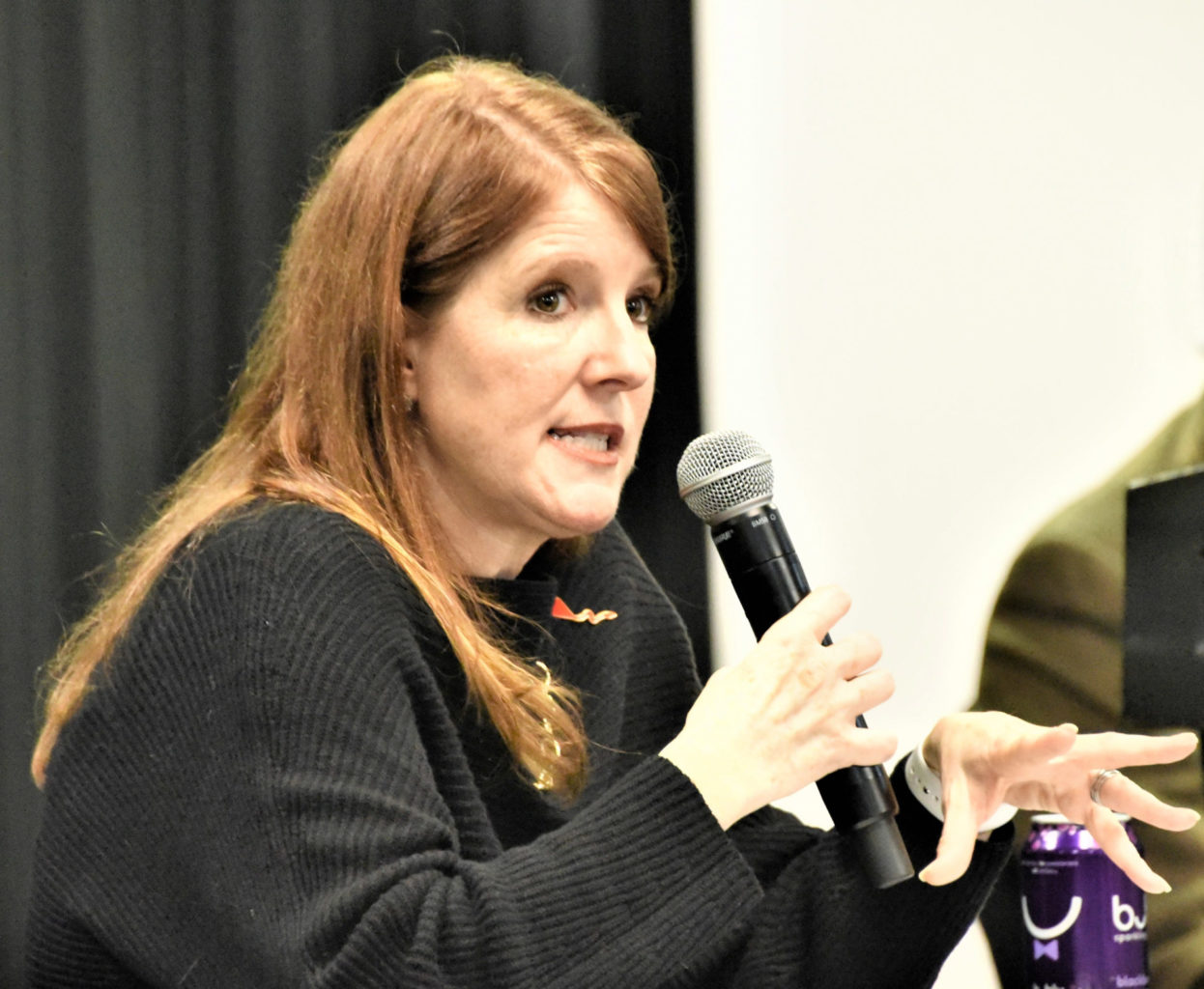
She voiced an urgent need to “lift and give hope.”
“Our city is under siege. Our young people must learn new skills so they won’t return to the things that got them in trouble. Young people are not getting the services and interventions they need before they are re-arrested. We can change that narrative.”
Goods said DCS is working to better use the resources on hand. Presently, 102 young people are in custody around the state; 59 are in a maximum-security facility, and 56 are in treatment for addictions to sex, drugs, and alcohol, according to the DCS chief.
Many had quite a bit to say when the floor was opened for questions and public comment.
“There is a saying in the village: ‘Nothing about us without us,’” said the Rev. Norman R. Redwing, founder of the Afrikan Heritage & Culture Village of Memphis.
He urged those who work with young offenders to be governed by the African-village principle.
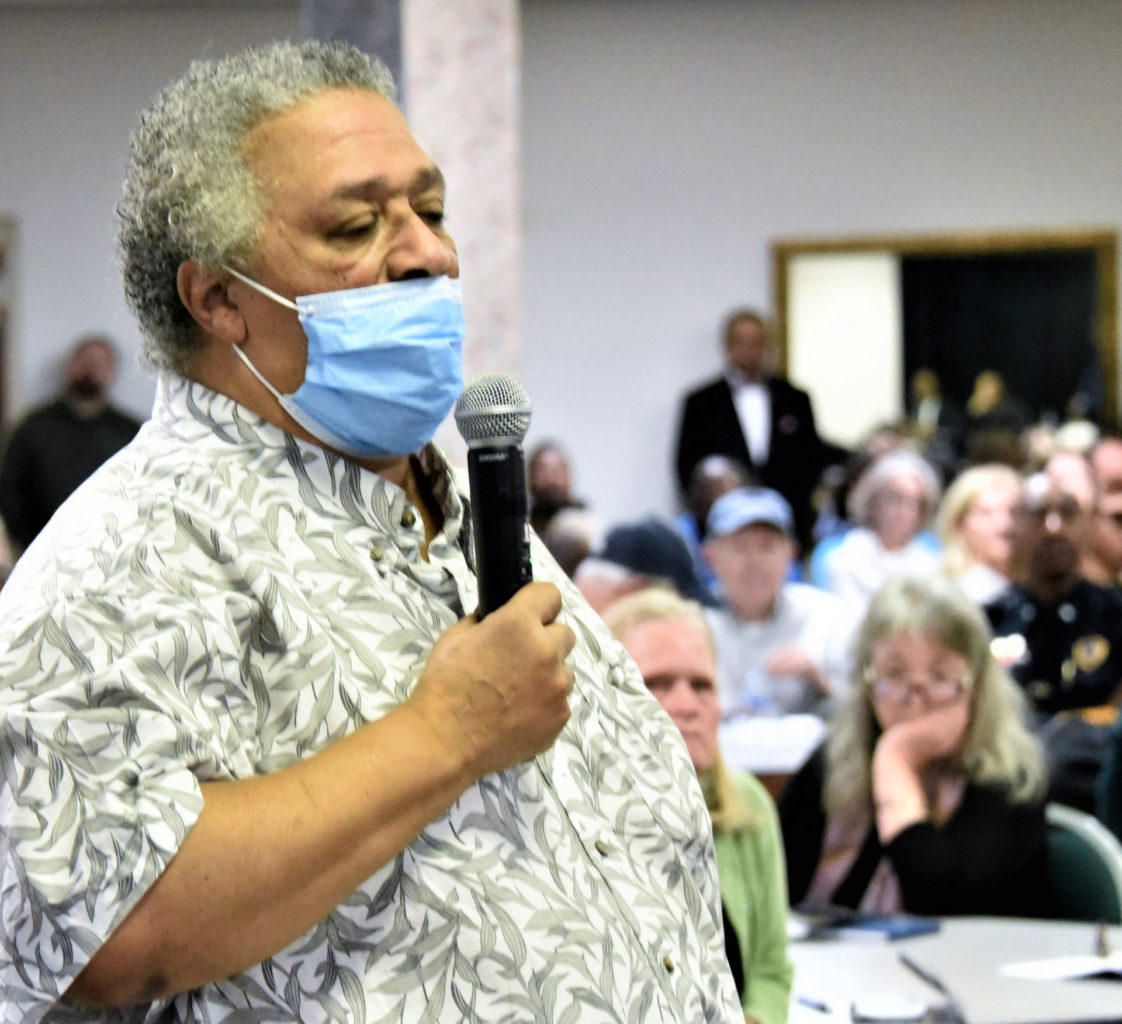
And said, Redwing, “Bring young people to the table when you talk about juvenile crime, so they can talk about their brokenness. They can talk about whatever issues are not being addressed for them.”
GALLERY



